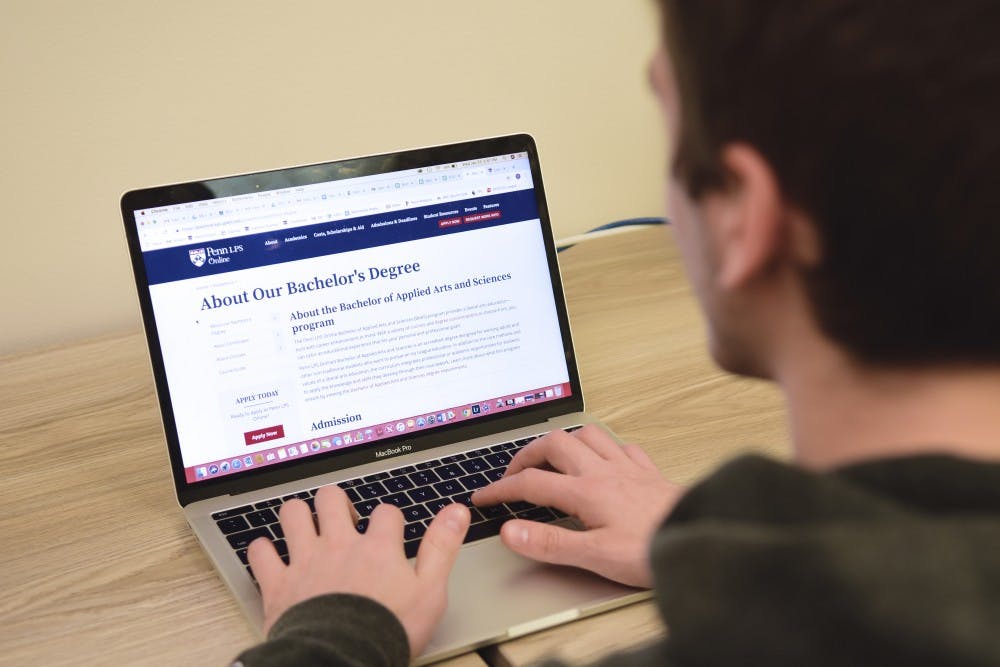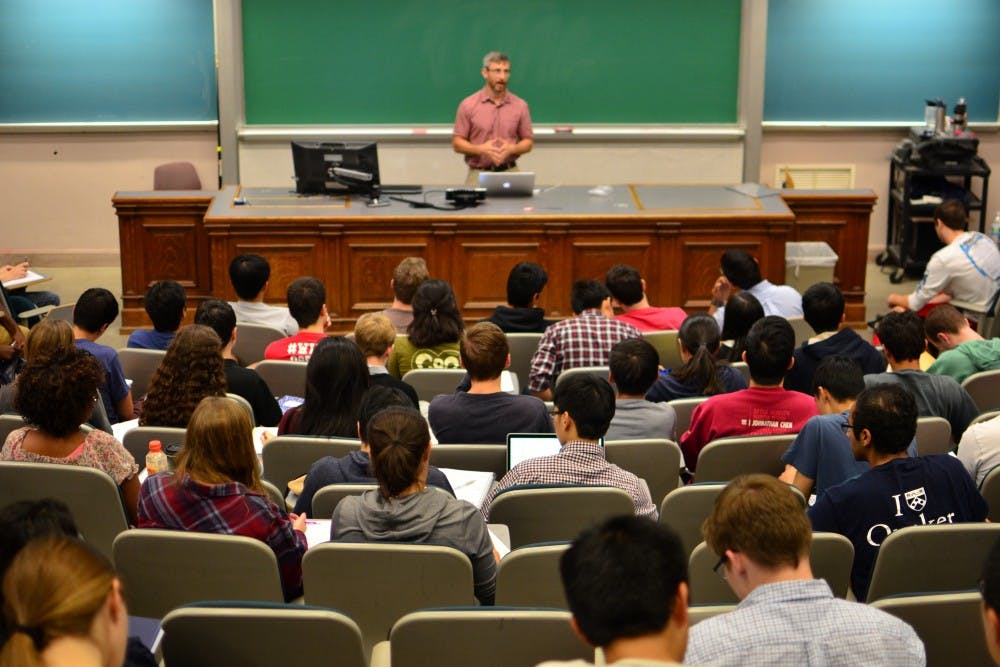
Penn will begin offering an online bachelor’s degree program for the first time starting in fall 2019, which will replace the evening and weekend LPS classes that Penn has offered for more than 100 years.
The new Bachelor of Applied Arts and Sciences degree will be offered through the College of Liberal and Professional Studies, which is a program for nontraditional students, such as working professionals. Incoming LPS students will complete their coursework online and will be required to visit campus for two "residencies," similar to orientation days, during their academic term.
Students currently enrolled in the LPS program will be permitted to complete their degrees on-campus, LPS Vice Dean Nora Lewis said. New students who are starting next semester, however, will be required to start taking their courses online. As the program slowly phases out into offering solely online courses, current LPS students can continue taking LPS courses until they complete their program.
Lewis said LPS decided to change the program to increase convenience for working adults who only want to be part-time students. She emphasized that this program would not replace residential education at Penn in the near future.
“This is about our access mission and reaching audiences who could never come to Penn and be residential,” Lewis said.

Some students say they are concerned that the entirely online curriculum will replace the traditional Penn experience of coming to campus for their classes.
LPS senior Logan Ayliffe, who studies cognitive science, said he would have picked a different program to pursue his bachelor's degree if his only course options were online. Ayliffe cited the "tarnished reputation" that online bachelor's courses face from employers as well as how these courses affect networking opportunities.
"One of the main advantages of a place like Penn is networking," he said. "Online courses just kind of take the soul out of that entirely."
The new BAAS program will cost students $2,125 per course unit, whereas the current equivalent on-campus program costs $3,616.
According to a new study from two university professors, for-profit online education programs, on average, overcharge students and have poor "student outcomes" in terms of academic performance and job placements.
George Mason University professor Spiros Protopsaltis and Skidmore College professor Sandy Baum co-authored the report and concluded that such programs “contributed to increasing gaps in educational success across socioeconomic groups."
“I think it’s really important to not believe that just because it has Penn’s name on it it’s going to be good,” Baum said. “It’s going to be a lot of work and take a lot of resources to do this right.”

Unlike Penn’s traditional undergraduate program, the LPS bachelor’s program is not taught primarily by standing or tenured faculty. The majority of its courses are instead taught by long-time lecturers or “advanced graduated students,” Lewis said.
Anna Safford, who teaches online creative writing courses for LPS, said she believes online learning opens up a range of “pedagogical possibilities" – if professors embrace the tools the platform provides, such as the Canvas website.
Safford added that while current evening and weekend classes are mixed with traditional undergraduates, the online platform allows her to fully commit to specifically LPS students.
Both Protopsaltis and Baum emphasized the importance of student-faculty interaction in ensuring the quality of online education programs.
“As long as the program provides ample interaction,” Protopsaltis said, “I cannot see why this wouldn’t be a good thing for UPenn to try out.”
The Daily Pennsylvanian is an independent, student-run newspaper. Please consider making a donation to support the coverage that shapes the University. Your generosity ensures a future of strong journalism at Penn.
Donate







